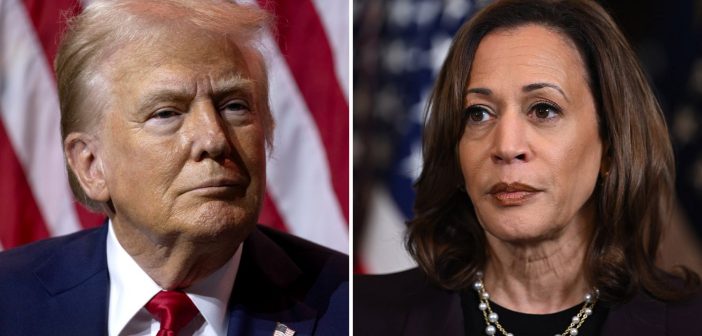The US elections are a pivotal event that exerts significant influence not only on the domestic stock markets but also on global financial markets, including India’s National Stock Exchange (NSE) and Bombay Stock Exchange (BSE). The 2024 US Presidential election is expected to have particularly pronounced effects, given the current geopolitical and economic climate.
US Elections and Their Impact on the US Stock Market
Historically, the US stock market experiences heightened volatility during election years. This is largely driven by uncertainty surrounding potential changes in economic policies, trade relations, and regulatory frameworks, all of which are closely tied to the outcome of the election. The 2024 election, in particular, is anticipated to be one of the most closely watched global events due to the polarized political landscape and its implications for international trade and economic stability.
Key Factors:
- Economic Policies: The policies proposed by the candidates can significantly influence sectors such as technology, healthcare, and energy. For example, during the 2020 election, Joe Biden’s victory led to expectations of increased spending on infrastructure and clean energy, which buoyed stocks in those sectors. Conversely, the Trump administration’s focus on deregulation and tax cuts had previously provided a boost to financial and energy stocks.
- Market Sentiment: US elections often trigger shifts in investor sentiment, leading to periods of risk aversion or risk appetite depending on the perceived stability and future economic direction. In 2024, with issues such as inflation, interest rates, and trade relations with China at the forefront, investor sentiment is likely to swing based on election developments.
- Volatility: Volatility is typically high during election years. In 2024, factors such as inflationary pressures, Federal Reserve policy, and global economic uncertainties are expected to amplify this volatility.
Implications for NSE and BSE in India
The effects of the US elections are not confined to American shores. Indian stock markets, represented by indices like the NSE’s Nifty 50 and the BSE Sensex, are closely intertwined with global market trends, and US political events can have both immediate and long-term impacts.
Historical Impact:
- 2008 Election: The global financial crisis overshadowed the election, but the victory of Barack Obama, who was perceived as a stabilizing figure, eventually led to positive global market sentiment, including in India. The Sensex, after an initial dip, recovered as global markets stabilized.
- 2016 Election: Donald Trump’s unexpected victory led to a sharp drop in Indian markets due to uncertainties about his trade policies. However, the markets rebounded quickly as fears subsided and global markets adapted to the new administration.
- 2020 Election: Joe Biden’s victory was met with optimism in India, particularly due to expectations of more predictable trade policies and a potential reversal of restrictive immigration policies that had affected the Indian IT sector.
Sectoral Impact:
- IT Sector: The Indian IT sector is highly sensitive to US policy changes, particularly those related to immigration and outsourcing. A Democratic victory in 2024 could lead to more favorable visa policies, boosting sentiment in this sector.
- Pharmaceuticals: Changes in US healthcare policy can have significant implications for Indian pharmaceutical companies, many of which rely on the US market for a substantial portion of their revenue. Policies favoring healthcare expansion could benefit this sector.
- Trade Relations: The election’s outcome could influence US-India trade relations. A pro-trade administration might reduce tariffs and ease trade tensions, benefiting export-oriented sectors in India.
Currency Movements: The US dollar’s movement relative to the Indian rupee is another channel through which US elections impact Indian markets. A strong dollar can hurt Indian importers and companies with significant foreign debt, while a weaker dollar can benefit these entities by reducing costs.
Short-Term Volatility and Long-Term Stability: In the weeks leading up to and following the US elections, Indian markets are likely to experience heightened volatility as investors react to election news and potential policy changes. However, historical patterns suggest that while there may be short-term disruptions, markets typically stabilize as the new administration’s policies become clearer.
Global Investor Sentiment: Foreign Institutional Investors (FIIs) play a crucial role in the Indian stock market, and their investment decisions are often influenced by US political developments. A favorable election outcome could lead to increased FII inflows, boosting Indian markets. Conversely, an unfavorable result could trigger capital outflows, putting pressure on the NSE and BSE.
Conclusion
The 2024 US Presidential election is poised to be a major event with far-reaching implications for global markets, including India’s NSE and BSE. Investors in India should prepare for increased volatility in the short term, but also consider the long-term implications of the election outcome on sectors like IT, pharmaceuticals, and export-driven industries. While the election will undoubtedly cause ripples in the Indian markets, the underlying strength of India’s economy and its ability to adapt to global changes will play a critical role in determining the overall impact.
By staying informed and closely monitoring developments, investors can navigate this period of uncertainty and position themselves to benefit from potential opportunities that arise post-election.





